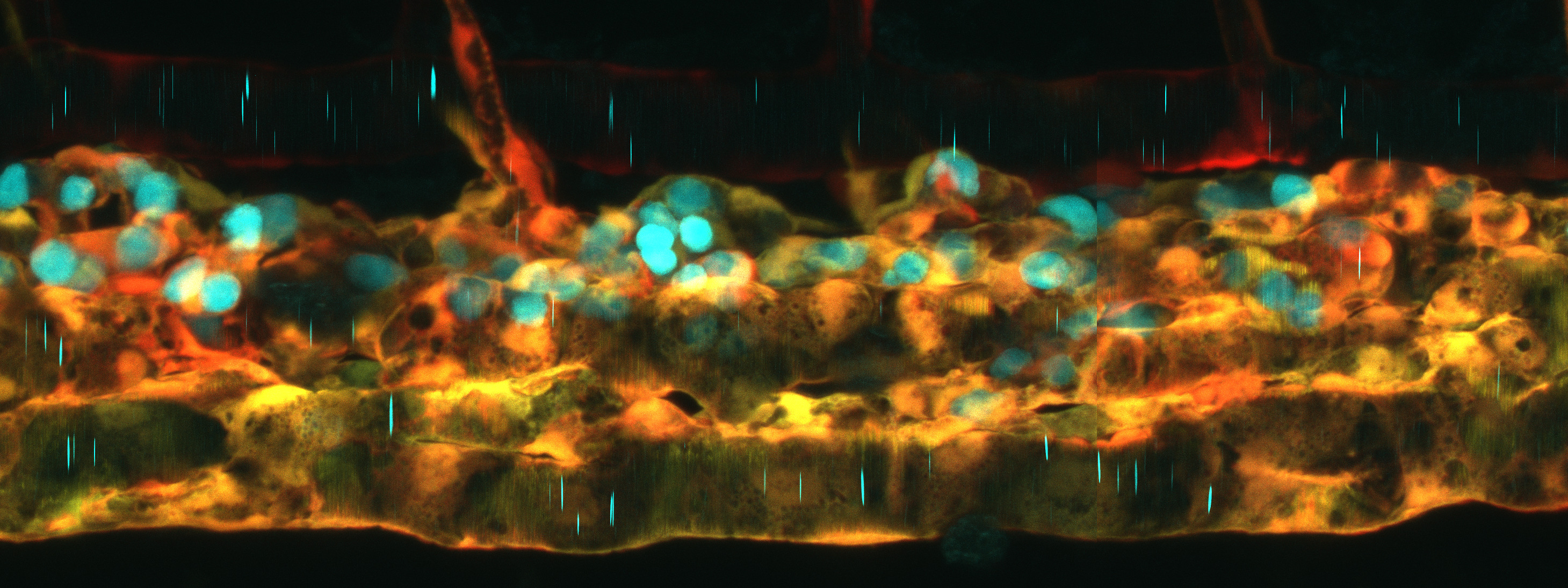Science and Society
The sun illuminates the Andes Mountains, setting them alight with colors that have no names, dancing above the grey-blue waters of Valparaiso’s bay. I gaze at the view, resting my eyes…it is beautiful, captivating. How many papers have I a pored over today? How much do I remember? How much should I remember? My brain and I are caught in the midst of a battle, a battle of “targets” versus “distractors”, caught in the binary world of good/bad, pleasant/unpleasant, that draws our attention too easily. I drag my attention back to the task at hand (target) and start to riff through seemingly endless pages of supplementary tables and figures: it is hard to convince my binary brain to ignore the beautiful view (distractor) and focus on this task. As scientists have told us, our brains have difficulty letting go of something that has caught our attention. The internet/social media maximizes conserved characteristics of nervous system function and we fight back, unknowingly or knowingly, trying to maintain our attention, sorting through information against a backdrop of distractors.[1]
In our Center we now need to set up a system for curation of all lab data so anyone can access it. I politely ask, “All data?” In response to the questioning look I ask about the data we all have (I assume). Those photos that are slightly out of focus and mistakenly saved in 16 bits, occupying too much space. Photos that will never be used in a publication, but are saved because you never know when you might need them to refresh your memory. With digital technologies, photos/videos come fast and furious consuming disc space and challenging organizational skills of lab members. Gone are the days of film, no more waiting with baited breath to see if you captured the perfect photos on your Kodachrome, knowing that each photo had “weight”; it was costly to produce and every mistake time–consuming. But shooting slide film was wasteful, sorting through the slides selecting the good and throwing out the bad before neatly inserting the chosen images into plastic slide sheets. But was that really more wasteful than current technologies? How much energy and water do we use to keep our data? Computing centers are responsible to 1% of the energy use worldwide, with servers, storage, and network hardware consuming 130TWh in 2018 (in 2010: 92TWh)[2]. Not that surprising, but what about water use? The Arizona Municipal Water Users Association (USA) struck a deal with Google, the largest U.S. internet company guaranteeing 1 million gallons a day to cool the proposed data center in water-stressed Arizona, and up to 4 million gallons a day if it hit project milestones[3]. According to Forbes magazine, by 2022 more than 82% of all consumer Internet traffic will be online videos — 15 times higher than it was in 2017[4]. All this water so we can watch our favorite puppy and kitten (and zebrafish) videos?
Sorting through information…this is what we scientists spend a fair amount of our time doing: our own lab information, information in papers, information on the newest techniques. And, we train our people how to sort information. But how much information is floating around out there? It turns out people keep track of this information too: ”In 2020, the amount of data created and replicated reached a new high…reaching 64.2 zettabytes in 2020” (5). I read this, trip over the word zettabytes, and off my brain goes, galloping down the road of distraction. What is a zettabyte? Does that come after terabyte? Or, is there something in between? And how many zeros are in that number? Coming back to the article, I learn that this number will triple in the next five years. But here is the clincher ”Only a small percentage of this newly created data is kept though, as just two percent of the data produced and consumed in 2020 was saved and retained into 2021”[5]. Does this mean we will lose our favorite videos on Instagram of cats trying to fit themselves into progressively smaller boxes? What about all those images on the Cloud? My Cloud is full…of what I no longer remember, but I am sure there are lots of slightly out of focus 16 bit images there…
Reflecting on my 20+ years as a research scientist I realize that the thing I have lost control of is time, scarce are the uninterrupted moments to think. I have a vague recollection of life before cell phones and smart phones (interesting name) when it was reasonable to say that you could not answer the (land-line) phone. At Cornell one day as I trudged through the snow in below zero weather, walking to work, a colleague passed by and offered me a ride. I said no thank you, explaining that this was my time to think. Here in Valparaiso I also walk to work, looking at the mountains and ocean. I treasure this time to think about experiments, my lab people, and, of course, ... how to manage our data.
Life's but a walking shadow; a poor player, that struts and frets his hour upon the stage, and then is heard no more: it is a tale told by an idiot, full of sound and fury, signifying nothing. (Macbeth; William Shakespeare)
Keep well
KE Whitlock
Valparaíso, Chile
June 21, 2021




